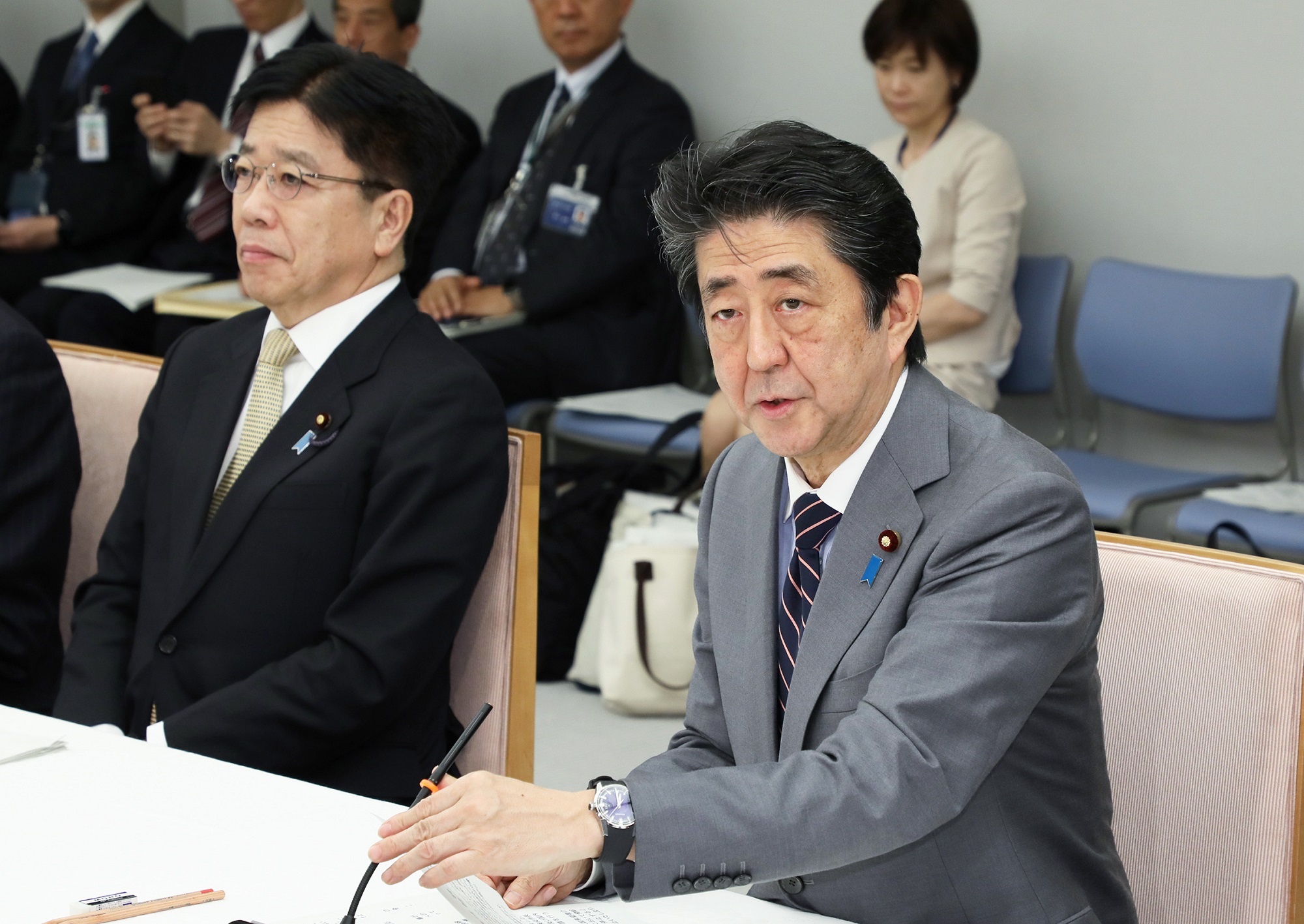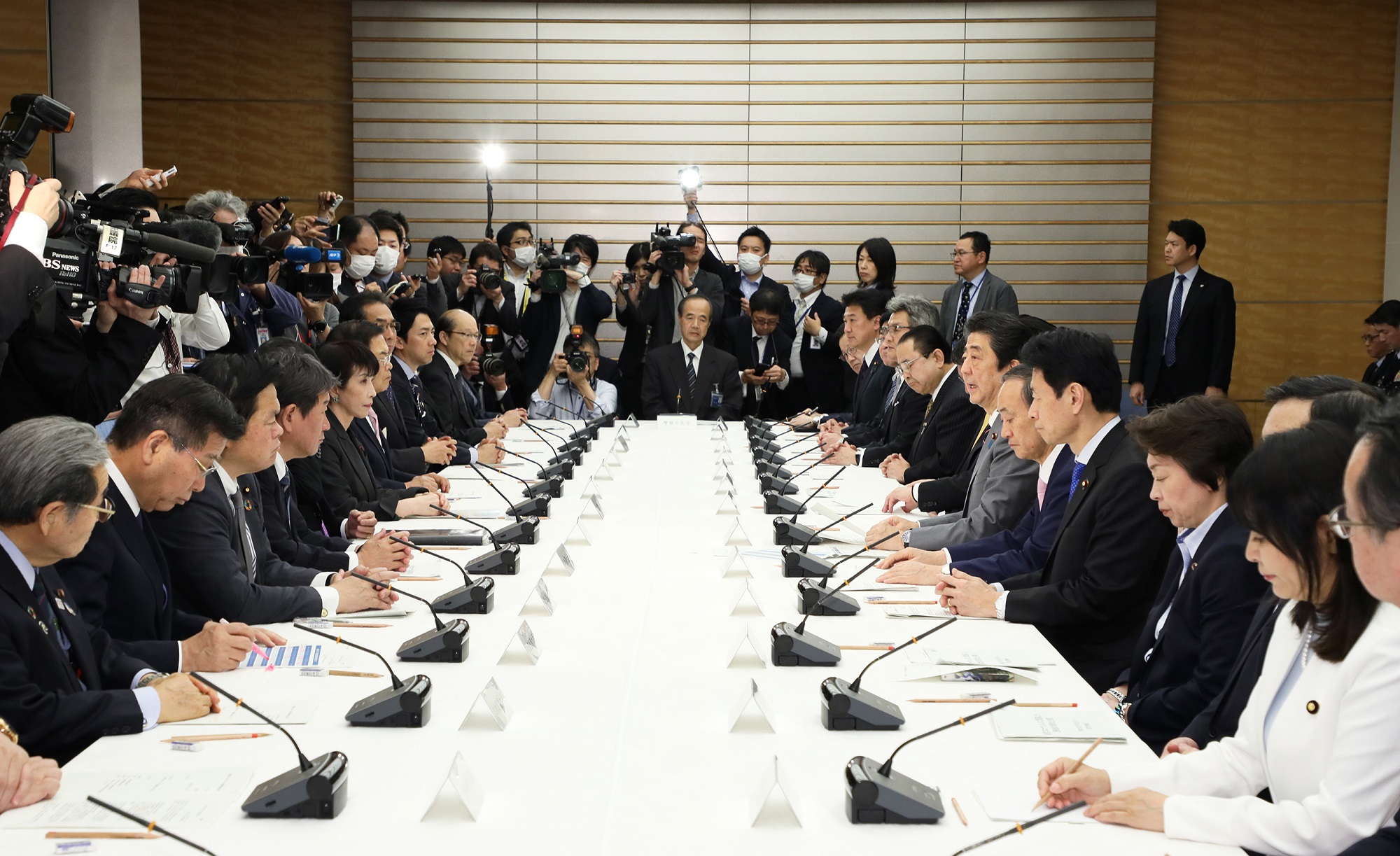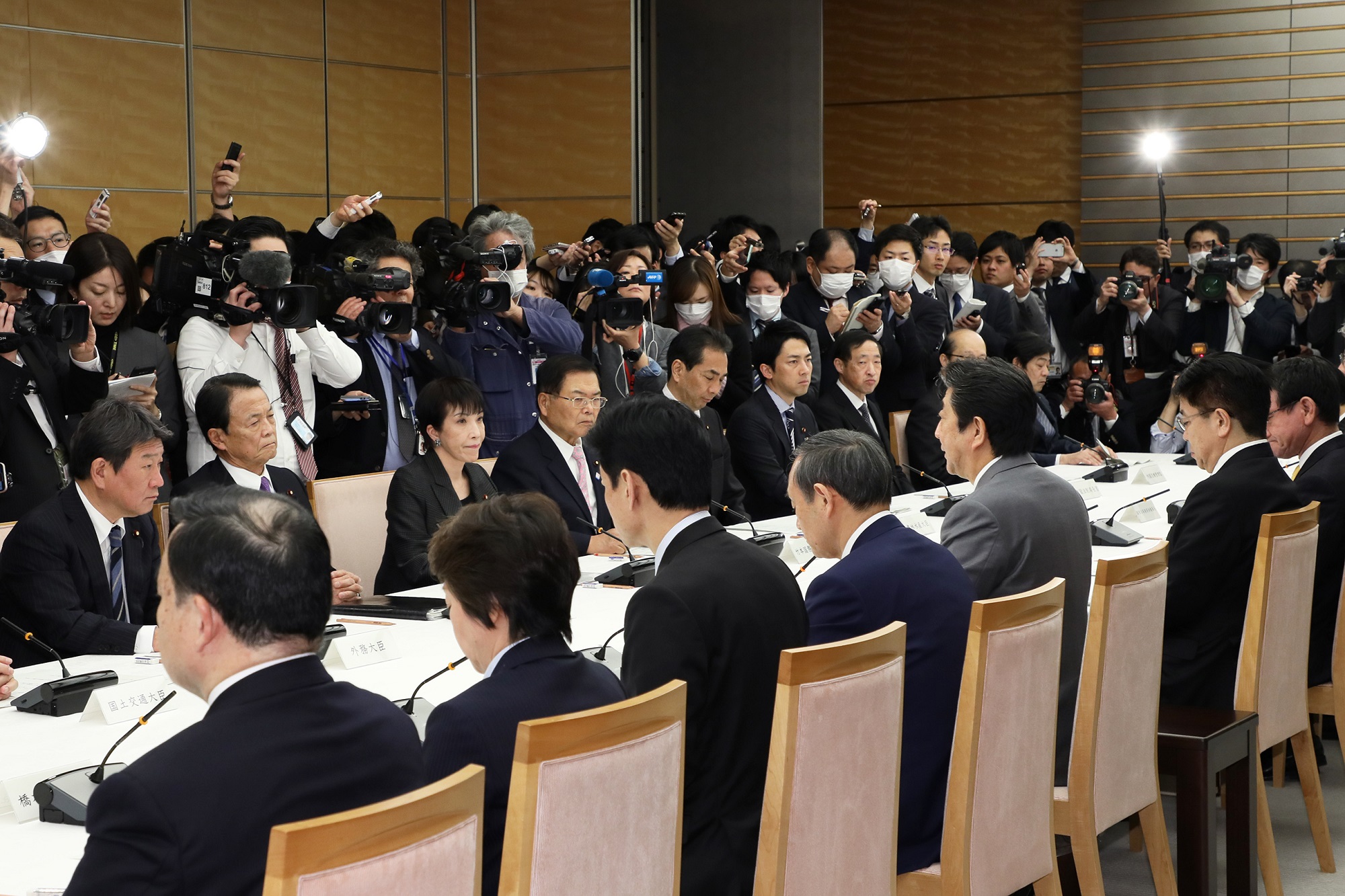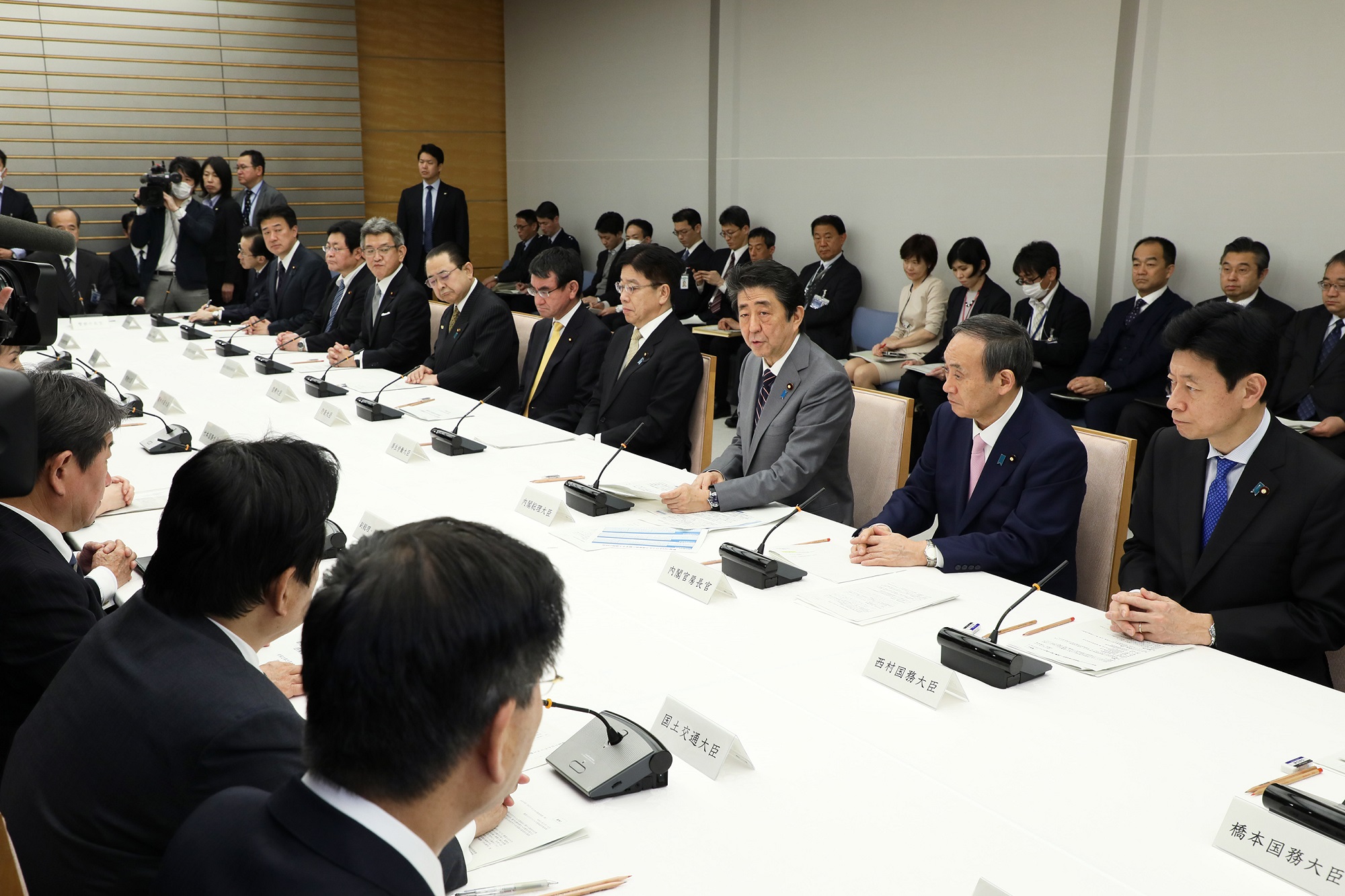Home > News > The Prime Minister in Action > March 2020 > 20th Meeting of the Novel Coronavirus Response Headquarters
The Prime Minister in Action
20th Meeting of the Novel Coronavirus Response Headquarters
March 18, 2020
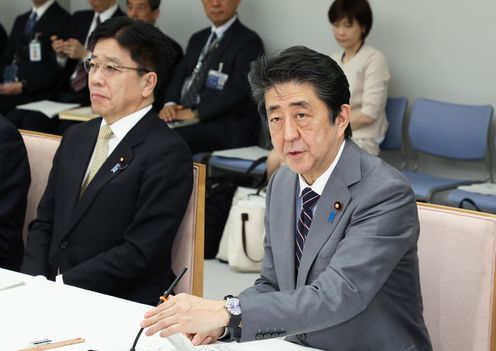
Photograph of the Prime Minister making a statement (1)
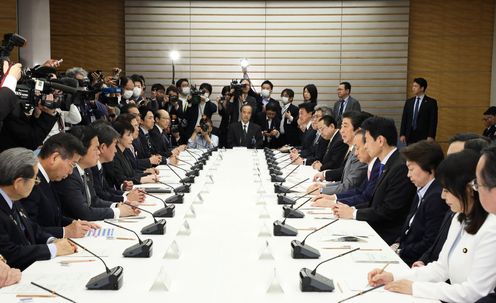
Photograph of the Prime Minister making a statement (2)
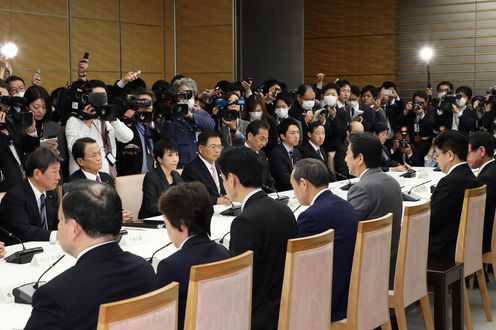
Photograph of the Prime Minister making a statement (3)
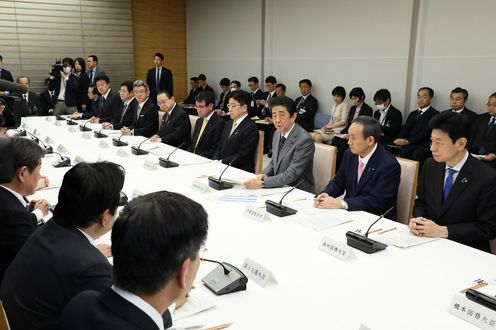
Photograph of the Prime Minister making a statement (4)
[Provisional Translation]
On March 18, 2020, the Prime Minister held the 20th meeting of the Novel Coronavirus Response Headquarters at the Prime Minister’s Office.
At the meeting, a discussion was held on the response to the novel coronavirus disease (COVID-19).
Based on the discussion, the Prime Minister said,
“The novel coronavirus disease (COVID-19) is continuing to spread across Europe, with the World Health Organization (WHO) describing that Europe has become the epicenter of the pandemic.
In light of this, with regard to certain regions of Italy, Spain and Switzerland as well as the entirety of Iceland, where the number of infections continues to increase and for which the government has raised the Travel Advice and Warning on Infectious Diseases to Level 3 of the travel advisories, we have decided to add these countries to the areas where we will deny entry in accordance with the Immigration Control and Refugee Recognition Act. This will be effective as of 0:00, March 19.
In addition, in light of the current situation of the outbreaks, we have assessed that it is necessary to further strengthen the quarantine measures for 38 countries, consisting of European countries, including all the Schengen countries, as well as Iran and Egypt. Persons entering Japan from these countries will be requested to stay for 14 days at a place designated by the Quarantine Station Chief, and not to use public transportation. From the perspective of ensuring the effectiveness of these measures and controlling the total number of people who intend to enter Japan, we will suspend the validity of single or multiple entry visas that have already been issued to persons in these countries, as well as successively suspending the visa exemption measures. We will proceed with the necessary arrangements, and start implementing the relevant measures from 0:00, March 21, until the end of April, for the time being.
Taking into account the current situation of the outbreaks in the world, we have raised the Travel Advice and Warning on Infectious Diseases for the whole world to Level 1 today, and alert the public about the necessity to review the pros and cons or postponement of all plans to visit overseas, no matter which region.
Amidst the rising concerns over the economic downturn, there are also concerns that some people will face difficulties in paying utility bills due to unemployment, among other reasons. It is an urgent issue to introduce additional measures for those who are worried about their daily lives.
Firstly, with regard to the Special Loans from Emergency Small Funds with special exemption of repayment, included as part of the second batch of emergency response measures, we will raise the limit on lending from 100,000 yen to 200,000 yen for households, including those of individual business owners, regardless of whether or not they have been impacted by the school closures, and respond to their anxiety about their daily lives. We will provide tailored assistance such us lending money more expeditiously for those who are facing an urgent need for living expenses.
With respect to utility bills, I ask the relevant ministers to request the relevant operators to respond swiftly and flexibly for those who have difficulty in paying electricity bills or other utility bills, such as extending the due date, paying attention to their circumstances, because of the impacts of the novel coronavirus.
We have also introduced a grace period of another year for the payment of national taxes and social security premiums, while simplifying the application and review process as much as possible. We will take a more active approach to raise awareness of these measures. With respect to local taxes, we will ask local governments to respond expeditiously with measures such as postponing payment.
Through these efforts, we aim to develop a strong safety net for the time being for those who presently face unemployment as the end of the fiscal year approaches.
Cancellation of various events and restrictions over the flow of the people are shrinking not only the world economy but also the Japanese economy. In order to respond to this global emergency, the G7 Leaders agreed during a video conference that each country will make full use of all possible measures and make as many policy responses as possible. Japan will also implement necessary and sufficient economic and fiscal policies that commensurate with the magnitude of the economic impacts.
At this moment, the prevention of the spread of infections is our highest priority. Afterwards, we intend to implement a set of bold measures, all at once, to bring the Japanese economy back to a solid growth path once again. In order to plan concrete measures, we will bring a wide variety of representatives from all levels of the public, in particular those areas impacted by the spread of the infections, and hold a series of intensive hearing sessions to listen to the voices of local communities and those at the forefront in their respective fields. The government and ruling parties will work together and elaborate a policy that is truly necessary to overcome this difficult time, while listening to those voices and sufficiently incorporating the current situation of local economies.
Last but not least, regarding the development of rapid test devices for PCR screening, which has been conducted, two types of devices have completed their development today and we have decided to use them, moving forward. One of the two will reduce screening time, which has taken close to six hours, to around one hour. This will enable medical institutions and other testing facilities to conduct simple and rapid screenings. We will continue to work on the enhancement of our screening structure and make all-out efforts to prevent the spread of infections.”

